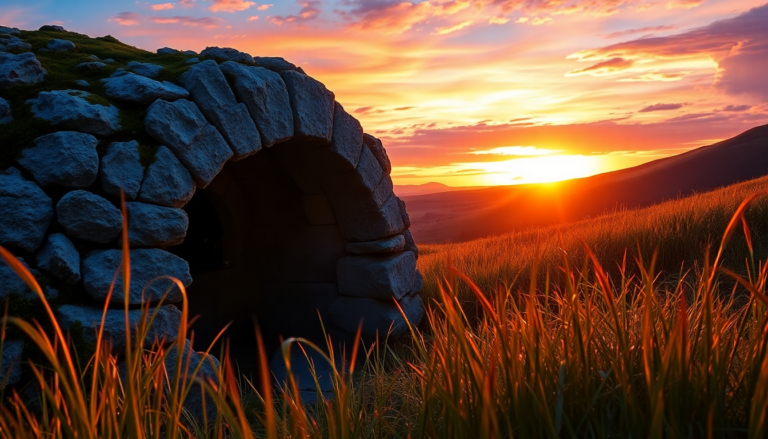Argomenti trattati
As the sun dips below the rolling hills of Gordion, a sense of mystery shrouds the landscape — a gentle reminder that beneath its surface lie tales waiting to be unearthed. Recently, a team of archaeologists uncovered a tomb that dates back 2,500 years, potentially linked to the legendary King Midas himself. This discovery not only stirs our imagination but also invites us to delve into the rich tapestry of history woven into this ancient land.
The Enigmatic Kingdom of Phrygia
The history of Turkey is like a vibrant mosaic of civilizations, each leaving its unique mark on the timeline of humanity. Among these, the Phrygian kingdom stands out, especially for its association with the captivating tales of King Midas — a figure draped in myth, famed for his golden touch. The tomb discovered in Gordion, once the heart of Phrygia, offers tantalizing glimpses into this bygone era.
Archaeologists from the Penn Museum and Ankara Hacı Bayram Veli University have made an astonishing find: a wooden chamber thought to belong to a member of the royal family. This remarkable discovery serves as a testament to the grandeur of Phrygian society and its intricate burial customs. The artifacts uncovered, including rare relics and the cremated remains of a high-ranking individual, underscore the significance of this burial site within ancient traditions.
“Based on these artifacts, we estimate that the person in the tomb may have been a member of the royal family associated with Gordio and Midas,” said Mehmet Nuri Ersoy, Turkey’s Minister of Culture and Tourism. This assertion not only enhances our understanding of the Phrygian elite but also invites us to explore their customs and beliefs more deeply. Have you ever wondered how the stories of ancient royals continue to echo through time?
The Rich Tapestry of Discovery
The tomb, believed to date back to the 8th century BCE, lies about 100 kilometers west of Ankara, nestled within a UNESCO World Heritage Site celebrated for its archaeological significance. The Phrygian Empire once dominated much of western and central Anatolia during the first millennium BCE, and its remnants are a treasure trove for researchers eager to peel back the layers of history.
This recent excavation sheds new light on the Phrygian civilization, particularly its funerary practices. The discovery of cremated remains is especially intriguing, as it represents the only cremation burial from the 8th century found at this site. Yücel Şenyurt, co-director of the Gordion excavation, highlighted that this exceptional treatment of the deceased signifies that this individual was anything but ordinary. Such insights enrich our understanding of ancient societal structures and their profound reverence for the deceased.
Moreover, the proximity of this tomb to another believed to be that of King Midas’s father suggests a familial connection, as royal burials are often clustered together. This interconnectedness emphasizes the importance of lineage and the respect afforded to those in power within Phrygian culture. Isn’t it fascinating how history reveals the intricate relationships that shaped civilizations?
A Journey Through Time
As excavations at Gordion continue — a site that has been under investigation for over 75 years — the allure of the ancient world grows ever stronger. Each artifact and each layer of earth unearthed tells a story, weaving together the past and the present. The commitment to understanding these narratives reflects a broader dialogue about heritage and the importance of preserving our history.
In a world where fast-paced living often overshadows the value of history, discoveries like the one in Gordion remind us to pause and reflect. They invite us to explore not only the physical remnants of ancient civilizations but also the traditions and stories that shaped them. For those of us captivated by the culinary arts, these tales enrich our understanding of food cultures, revealing how ancient practices influence modern gastronomy. Have you ever considered how the flavors on your plate connect you to the past?
As we await further revelations from the Gordion site, we are reminded that every dish served on our plates carries echoes of history, much like the discoveries in this ancient city. Let us savor the flavors of history because behind every bite lies a story waiting to unfold.

